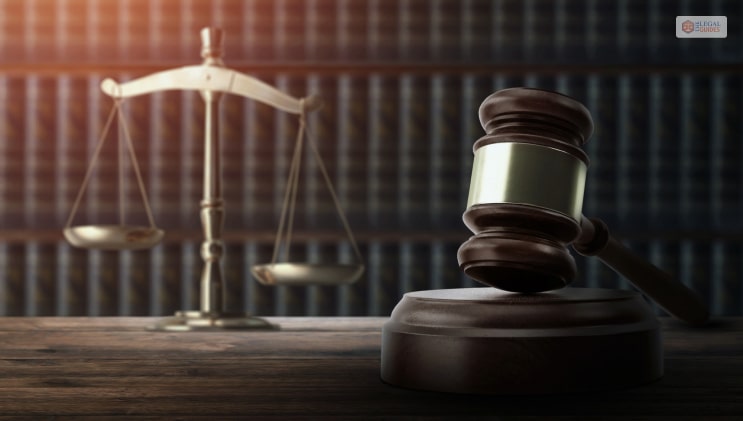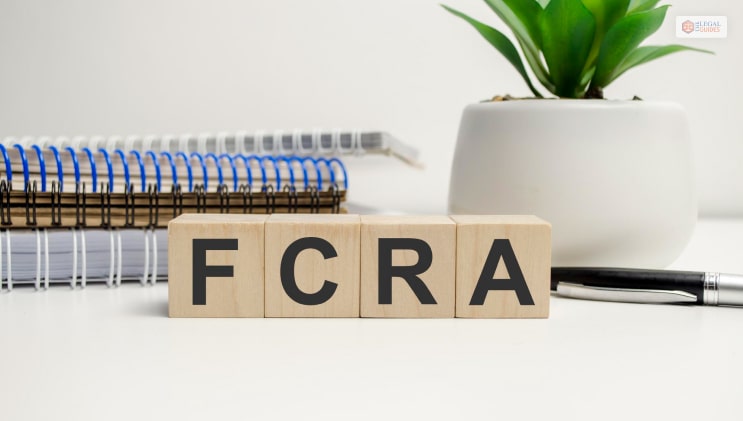The Fair Credit Reporting Act is a piece of federal legislation that protects consumer credit information. Also known as the Consumer Credit Protection Act, it came into effect in the year 1970.
What Is The Purpose Of The Fair Credit Reporting Act?

The federal legislation was enacted to ensure that the privacy and accuracy of consumer information are protected in consumer reporting agencies. The Act can be found in Title 15 of The United States Code.
The Act stipulates that any consumer information gathered by the consumer reporting companies cannot be used for a purpose that has not been specified in the Act.
What Are Consumer Reporting Agencies?

Consumer reporting agencies are the ones responsible for generating our credit scores. Credit scores are a very significant aspect as it decides whether a debtor will be able to pay back their debt or if will there is a possibility of it being a default.
Thus, it is of utmost importance that credit reporting agencies provide exact information. The Fair Credit Reporting Act was brought into force to make sure that consumer reporting agencies make no errors or are not negligent in entering consumer data into their records.
The Federal Fair Credit Reporting Act also makes sure that consumer information is not misused in these cases. It forms the basis for Consumer Rights Protection legislation in the United States.
How Does The Federal Fair Credit Reporting Act Work?

The Act functions under the authority of two manor federal bodies. They are:
- The Federal Trade Commission
- The Consumer Financial Protection Bureau
The Major Credit Reporting Bureaus include,
- TransUnion.
- Experian.
- Equifax.
These agencies carry on the duty of examining previous financial dealings of the customers which can be used to calculate their credit score.
Rules Under Fair Credit Reporting Act

The Act dictates the areas from which consumer reporting agencies can collect data.
What Is The Kind Of Data That Agencies Are Allowed To Collect?
Information that is relevant may include a number of areas, such as:
- Past debts and loans are taken by the person.
- Bill payment practices of the individual.
- Any current debts of the individual.
- Employment details.
- Present and previous address, if any of the individual.
- Their criminal or arrest record if any.
- If they pay child support or alimony.
Who Is Allowed To Access A Credit Report?
The Federal Fair Credit Reporting Act limits the people and the circumstances under which are allowed to access credit reports.
Such circumstances and people usually include the following.
□ Any creditor who is about to loan you money.
A creditor may ask for your credit information when loaning you money. This is a completely justified deal because the person has to be able to trust the borrower with their money.
□ In Case Licences Issued By The Government.
When a person can be asked to submit their credit information if there is an order passed by a court of law to that effect or when there is a grand jury subpoena that is federal in nature.
□ By Insurance Company.
An insurance company can legally claim to have information about the individual’s credit score when they are looking to get a policy through the company.
□ With The Applicant’s Permission.
A person can be asked to provide consumer information like credit score by the company in which they are looking to be employed. However, such information can only be claimed with the consent of the person in question.
| Warning: When an organization asks for a credit report from a person, such a request has to be made in accordance with the conditions of the act. Credit report purposes are mandatory to be mentioned in such cases. |
What Are The Consumer Rights Under The Fair Credit Reporting Act?

The Fair Credit Report Act protects certain rights of consumers. A consumer is entitled to get one credit report every 12 months from one of the three government-recognized bureaus. There are a few other rights that one enjoys under this Act.
They are as follows.
- An individual has every right to verify the accuracy of their credit report if it is to be used for governmental purposes.
- They have the right to file a report if their credit information has been used against them when applying for credit.
- One has every right to repair their credit. This means one has every right to rectify any incorrect information given in their report about their credit.
- They have the right to remove outdated credit information after some time has passed.
What Are The Fair Credit Reporting Act Violations?

Mistakes under the Act are common as many agencies forget to keep their information up-to-date. But when errors become too grave to be fixed, they are liable for penalties.
Violations under the Act can include but are not limited to the following.
□ When There Is A Failure In Updating Reports In Case Of Bankruptcy.
Due to the vast amount of information that the agencies deal with, mistakes happen often. Old debts can sometimes be reported to be new ones. A closed financial account may be reported to be running by mistake.
□ A Creditor May Provide Incorrect Financial Information About You.
With more than a million consumers to keep track of, creditors have to be extremely careful with credit information.
□ The Reporting Agencies May Provide Business Organizations With Details About You.
No reporting agency has been legally authorized by the Act or any other federal law to do so.
□ The Credit Reporting Agencies May Often Not Abide By The Guidelines Provided By The Act.
When a credit report is accessed with illegal intent. For example, one may prefer to have knowledge about your assets before they file a lawsuit against you in hopes of getting a better deal in punitive damages.
□ If You Do Not Knowingly Update Your Credit Score Details, You May Be Standing In Violation.
Violations have been taken very seriously by the Federal Trade Commission and the US government. There have been many instances where organizations have paid more than 100,000 dollars as a settlement for consumer data breaches.
That’s About It!
The Fair Credit Reporting Act supervises consumers’ financial rights. The average consumer’s rights are heavily dependent on their credit score. People also take care that they do not fall into any legal trouble or debt-related issues which could potentially affect their credit reports.
The Act aims to keep track of credit reports so that errors are minimized and the consumer’s best interests are protected.
Do let us know if you found the article informative! Comment below and let us know your thoughts on it.
Read Also:






